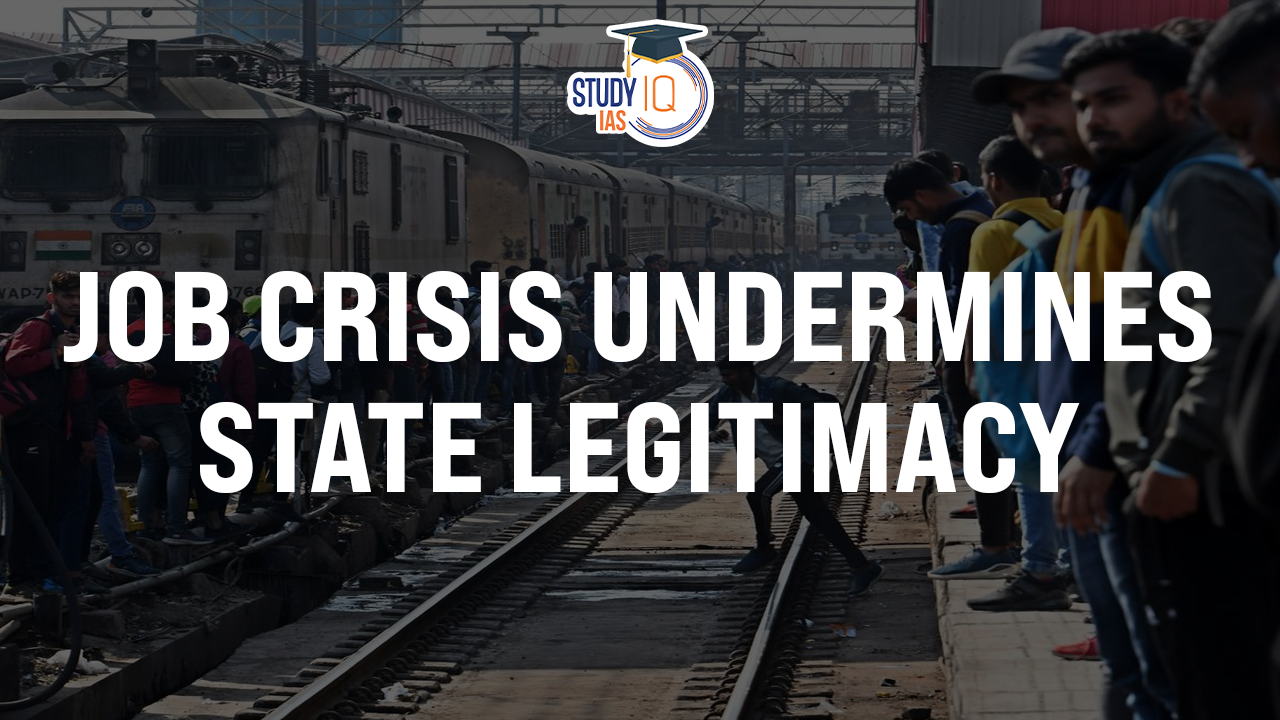Table of Contents
What is meant by Quality Job?
A good quality job is characterised by dignity, adequate compensation, opportunities for learning, and pathways for advancement.
The Issue of Quality Employment
- Lack of Quality Employment: Many available jobs are informal, unpaid, and dead-end, offering no dignity, opportunity for advancement, or financial security, especially for the youth.
- Deceptive Unemployment Rate: The low unemployment rate does not reflect the reality of joblessness because individuals who work for only one month in a year are considered “employed.”
- Technological Displacement: Technological advancements and capital concentration are leading to the displacement of large sections of the workforce, potentially permanently.
- Widening Inequality: Economic growth and capital accumulation disproportionately benefit the elite, leaving the majority without financial security or social status. This threatens the social fabric and leads to political instability.
- Inadequate Political Responses: Political leadership often focuses on short-term electoral gains rather than addressing long-term structural issues such as unemployment and inequality.
- Flaws in Universal Basic Income (UBI): UBI is criticised for potentially deepening inequality by implying that a significant portion of the population is unnecessary to the economy.
- It provides financial support but fails to address the dignity and sense of purpose that come from meaningful work.
- Risk to Democracy: Failing to address structural economic issues risks eroding democratic legitimacy, leading to the rise of populism and authoritarianism as alternatives to a failing political system.
Suggestions
- Create Quality Jobs: The government should focus on creating jobs that provide dignity, financial security, and opportunities for learning and advancement, especially for the youth.
- Address Structural Issues: Political parties must tackle long-term structural problems like unemployment and inequality, rather than focusing solely on electoral victories.
- Rethink UBI: Instead of relying on Universal Basic Income as a solution, efforts should be directed towards meaningful reforms that allow people to contribute to society in a dignified way.
- Promote Inclusive Economic Participation: Economic and social systems must be restructured to ensure that everyone has a stake in the economy.
- This means focusing on more than just wealth redistribution but also ensuring that individuals feel relevant and capable.
- Encourage Broader Political Engagement: The political system needs to provide avenues for broader engagement that go beyond short-term partisanship.
- Democracy must involve creating a social contract that ensures dignity, participation, and financial support for all.
- Ensure Technological Adaptation: Governments and political leaders must prepare society for the inevitable technological shifts by creating policies that mitigate displacement and inequality.
- This will ensure that technological advancement benefits the broader population, not just the elite.
- Restore Public Faith in Democracy: Meaningful leadership is required to restore public trust in democratic institutions.
- This includes focusing on social and economic participation and addressing issues of dignity and unemployment directly.


 Utkal Divas 2025: Odisha Foundation Day ...
Utkal Divas 2025: Odisha Foundation Day ...
 List of Military Exercises of India 2024...
List of Military Exercises of India 2024...
 GPS Spoofing and Its Impact in India: A ...
GPS Spoofing and Its Impact in India: A ...





















